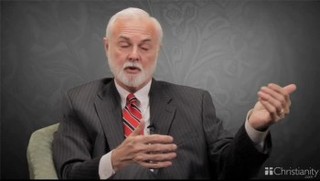Change Translation
- Recent Translations
- All Translations
Mark 1:26
Share
Listen to Mark 1:26
Settings
Scripture Text Size
Mark 1:26 Meaning and Commentary
Mark 1:26
And when the unclean spirit had torn him
Not that he had torn any limb from him, or had made any wound in any part of his body; for Luke says, ( Luke 4:35 ) , that he "hurt him not", but he shook him; and as Luke there says, "threw him in the midst", of the people, or synagogue; and so the Syriac, Persic, and Ethiopic versions read here, "he cast him", or "threw him to the ground": he threw him into convulsions, and laid him prostrate on the floor:
and cried with a loud voice, he came out of him;
though sorely, against his will, as his loud cry showed, and being obliged to it by a superior power.
Taken from John Gill's Exposition of the Bible
Unlock Deeper Insights: Get Over 20 Commentaries with Plus! Subscribe Now
Mark 1:26 In-Context
24
“What have you to do with us, Jesus of Nazareth? Have you come to destroy us? I know who you are— the Holy One of God. ”
25
But Jesus rebuked him, saying, “Be silent, and come out of him! ”
26
And the unclean spirit, convulsing him and crying out with a loud voice, came out of him.
27
And they were all amazed, so that they questioned among themselves, saying, “What is this? A new teaching with authority! He commands even the unclean spirits, and they obey him. ”
28
And at once his fame spread everywhere throughout all the surrounding region of Galilee.
Videos for Mark 1:26
The Holy Bible, English Standard Version® (ESV®) © 2001 by Crossway, a publishing ministry of Good News Publishers. All rights reserved. ESV Text Edition: 2025



